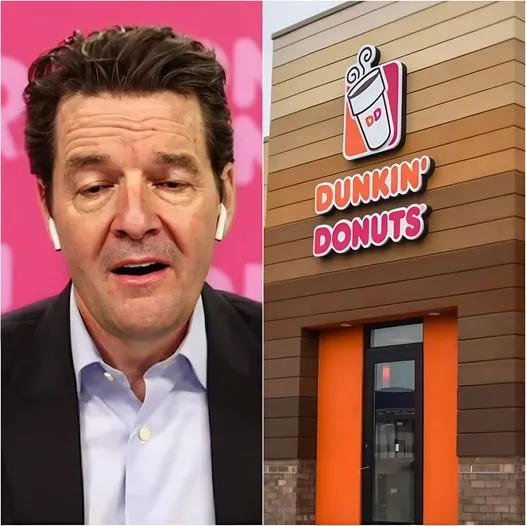In a dramatic turn of events, Dunkin’ Donuts, one of the most iconic coffee and doughnut brands in the world, is facing a massive financial crisis after adopting what some are calling a “woke” business strategy. Reports indicate that the company has lost nearly $1 billion due to this shift, a move that executives now regret, calling it “the biggest mistake of our life.” The controversy surrounding Dunkin’s decision has sparked significant public debate about the risks and rewards of incorporating socially and politically charged messaging into corporate branding.

The Shift to a “Woke” Strategy
Dunkin’ Donuts, a brand synonymous with breakfast staples and coffee runs, has long enjoyed a massive, loyal customer base. For decades, the company has focused on delivering quality products at affordable prices, building its reputation as a go-to for millions of customers worldwide. However, in recent years, Dunkin’ adopted a new approach, aligning itself with socially progressive causes and taking a more vocal stance on political issues. This shift was seen by many as an attempt to stay relevant in a changing cultural landscape, where consumers—especially younger generations—expect companies to champion social justice issues.
The company began to emphasize its commitment to diversity, equity, and inclusion (DEI) in its marketing campaigns, releasing a series of advertisements and social media posts supporting causes such as LGBTQ+ rights, racial equality, and environmental sustainability. While these initiatives resonated with some, the decision to dive headfirst into politically charged messaging alienated a significant portion of the company’s core customer base, particularly those who felt that Dunkin’ was abandoning its traditional, neutral stance in favor of aligning with divisive ideologies.
Backlash from Long-Time Customers
The backlash against Dunkin’ Donuts’ “woke” stance was swift and intense. Many long-time customers took to social media to express their frustration, accusing the company of prioritizing politics over its products. Some customers felt that the shift was unnecessary and forced, leading them to boycott the brand altogether.
One user on Twitter expressed the sentiment shared by many: “I go to Dunkin’ for coffee, not to be lectured on politics. What happened to staying focused on what made you successful?” Others echoed similar feelings, stating that they no longer felt comfortable supporting a company that they believed was trying to push a political agenda.
The response wasn’t just limited to social media; Dunkin’ Donuts experienced a noticeable decline in foot traffic and online orders as customers began to explore other coffee chains and local options that remained apolitical. The combination of public outrage and lost business contributed to the company’s staggering financial loss, with estimates showing that the company lost nearly $1 billion in revenue in the wake of the backlash.

The Financial Fallout: Almost $1 Billion in Losses
The impact of Dunkin’s decision to go woke has been nothing short of devastating for the company’s bottom line. With many customers abandoning the brand and voicing their displeasure, Dunkin’ experienced a sharp decline in sales across its U.S. and global locations. In total, reports indicate that the company lost nearly $1 billion, a significant hit that has sent shockwaves throughout the corporate world.
Executives at Dunkin’ Donuts have since acknowledged the massive financial losses, with one high-ranking official stating, “It was the biggest mistake of our life.” The admission reflects a growing recognition within the company that the decision to adopt a woke strategy may have alienated more customers than it attracted. While the company intended to broaden its appeal to younger, socially-conscious consumers, the results have highlighted the risks involved in embracing such a polarizing approach.
Learning from Other Brands’ Mistakes
Dunkin’ Donuts is not the first major company to face backlash for adopting a woke strategy, and it likely won’t be the last. In recent years, a number of prominent brands have attempted to align themselves with social justice movements in an effort to appeal to a more progressive customer base. However, the results have often been mixed, with some companies thriving after embracing these causes and others facing significant pushback and financial loss.
For example, Gillette, the razor company, made headlines in 2019 with a controversial ad addressing toxic masculinity. While the campaign was praised by some for tackling important social issues, it also led to a boycott from others who felt that the brand was pandering to political correctness. Like Dunkin’ Donuts, Gillette experienced a dip in sales following the campaign, leading many to question the effectiveness of woke marketing.